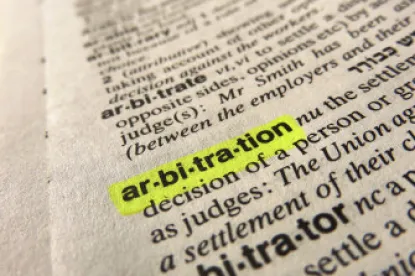In a recent post addressing the U.S. Supreme Court oral argument in Viking River Cruises v. Moriana, we mentioned that employers in California will want to consider the “pros and cons” of arbitration agreements should an employer-friendly decision be issued in that case, rather than rush to implement them.
In response, more than a few people have asked the same or similar questions — What are the “cons” of arbitration agreements? Why wouldn’t an employer want to use arbitration agreements, particularly if they will foreclose Private Attorney General Act (“PAGA”) actions in California?
There are “cons” to these agreements — and they are not insignificant.
Because of these “cons,” many employers across the country have chosen not to implement arbitration agreements. And many employers in California will likely choose not to implement them even if an employer-friendly decision is issued in Viking River Cruises.
Perhaps this chart of the “pros” and “cons” will be helpful.
| |
Pros |
Cons |
| Class, collective and representative actions |
- These types of large-scale actions with great potential exposure should be foreclosed (unless there are issues with contract formation or interpretation, the requisite FAA “interstate commerce” is not involved, or the FAA’s transportation exception applies)
|
|
| Jury |
- Avoiding the unpredictability of a jury
- Avoiding a decision driven by jury sympathy
- Avoiding the possibility of the “runaway jury
|
- Arbitrators can be unpredictable, too
- Arbitrators can be sympathetic, too
- The possibility of the “runaway arbitrator” whose award will likely be exceedingly difficult to challenge because of the limited appeal rights (see below) – like the California arbitrator who awarded a plaintiff $4.1 billion in a wrongful termination case
|
| Appeal |
- Limited appeal rights mean that a favorable decision will likely be final, such that the employer is likely to avoid additional attorney’s fees and time
|
- Limited appeal rights mean that an unfavorable opinion will likely be final, too
|
| Discovery and motions |
- There could be less discovery and more limited motions practice in arbitration
|
- Depending on the arbitration agreement, the arbitration service and the arbitrator, discovery and motions practice in arbitration could be the same as in court
|
| Attorney’s Fees and Costs |
- Attorney’s fees and costs can be less if there is less discovery and motions practice than in court
- Limited appeal rights mean that appellate fees and costs typically will be avoided
|
- Attorney’s fees can be virtually the same as they would be in court depending on the amount of discovery and motions practice
- Arbitration costs can be substantial, all for activities that a judge would perform without additional cost to the employer
- Arbitrator’s fees for a single-plaintiff case can exceed $100,000
- There will be fees for all of the arbitrator’s activities, including conferences, reviewing briefs, conducting hearings and issuing orders
- Employees and their counsel can purposefully drive up fees and costs by taking positions that require the arbitrator to intervene
|
| Settlement |
- The fact that they will not reach a jury could incentivize employees and their counsel to be more reasonable in settlement discussions
|
- The fact that employers will have to incur significant arbitration costs may encourage employees and their counsel to be more unreasonable in settlement discussions (e.g., “You’re going to have to pay the arbitrator $100,000 in any event. You might as well give that to us now and avoid paying more attorney’s fees.”)
|
| Employer morale and union organizing effects |
|
- Mandatory arbitration agreements could create morale issues, which in turn could lead to attrition
- Mandatory arbitration agreements can be an issue that unions will highlight in organizing efforts
|



 />i
/>i
